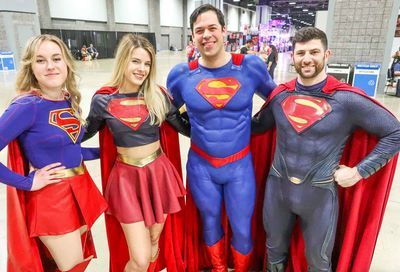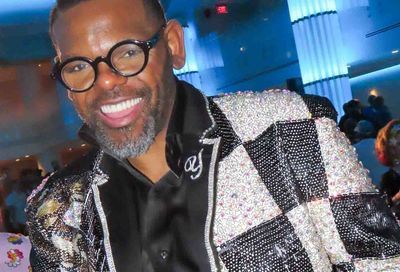Leukemia Laughs
Adam Sandler shines and some jokes hit the target, but 'Funny People' weighs in too heavy and runs too long
Though it happens all the time in movies or in sitcoms, I’ve never actually known someone to make a deal with a cabbie that the size of the tip decreases every minute, meaning the longer the ride the smaller the tip. But a similar deal should have been struck with Judd Apatow about his new film, Funny People: The longer the film, the worse the review. And clocking in at over two and a half hours, Funny People loses a good rating.
First off, Funny People is not an outright funny movie. Sure, there are lots of jokes and it’s chock-full of funny people, but even with Jonah Hill providing the laughs and Adam Sandler bringing the tears, the scale still tips to the drama side of dramedy. Apatow, who also helmed The 40 Year Old Virgin and Knocked Up, is clearly aiming for something more serious here. He’s trying to show the softer side of comics – the idea that sometimes laughter is a cover for tears.

Funny People: Sandler and Rogan
George Simmons (Sandler) made his life out of crass, stand-up comedy, which he parlayed into some box-office hits. When George is told that he has a form of leukemia and has to undergo an experimental treatment, he starts to re-evaluate his life. Laughing yet? George turns to deli-counter boy by day/aspiring comedian by night Ira Wright (Seth Rogen) to help provide jokes for his act. The two forge an unlikely friendship as they both discover what’s really important to them. (Hopefully that sounds as cliché and trite as it feels in the movie.)
Apatow is striving to achieve a great deal more with this film than when he tried to get the virgin laid or pair the frumpy guy with the beautiful chick. Funny People is a dissection of comedy itself. What makes people funny? What is the root of humor and how can it be used to connect with strangers? What happens when funny struggling artists start to succeed? And can cock-and-ball jokes transcend adolescent humor to a higher art form?
While the overarching plotline of re-evaluating life upon getting bad news sounds more like a country song than an Apatow film, the struggles of Ira to make it as a comic feel much more real and vivid.
Not surprisingly, Apatow does incorporate real Hollywood into the story in fun ways. Elizabeth Banks and Justin Long, while not in the film’s actual narrative, co-star with George in his various movies and a bevy of comedians make cameos – though some aren’t as recognizable as they may hope. And Sarah Silverman has a wonderful moment stealing the scene as only she can. But ultimately it’s clear that George is not the fictional version of Sandler and more is going to be required of him.

 1/2
1/2Starring Adam Sandler, Seth Rogen
Rated R
146 Minutes
Opens Friday, July 31
Area Theaters
Sandler is the strongest part of the film. Even as his character is struggling to understand his own identity, the actor nails it, able to handle the character’s lows with much more finesse than Rogen, who still looks like a ham even when he’s faced with deadly serious topics.
The final third of the film — when the meter really starts to tick and the tip amount drops like a stone — pits George and Ira against George’s former lover Laura (Leslie Mann) and her hubby from down under, Clarke (Eric Bana). Mann also works the comedic scenes better than the serious moments, while Bana just works the Aussie accent into the ground.
At one point Laura screams at Ira, “Who are you? What are you doing here?” That sums up the problem with Funny People. It’s all predicated on Ira tagging along behind George and being the third-party witness to his changing life. But at the same time, to explain Ira’s omniscient presence, examining the relationship between the two comics and Ira’s own life-struggles. It’s just too much. By the final scenes you almost hope for a “Previously on…” recap just to remind you what took places hours ago.
Support Metro Weekly’s Journalism
These are challenging times for news organizations. And yet it’s crucial we stay active and provide vital resources and information to both our local readers and the world. So won’t you please take a moment and consider supporting Metro Weekly with a membership? For as little as $5 a month, you can help ensure Metro Weekly magazine and MetroWeekly.com remain free, viable resources as we provide the best, most diverse, culturally-resonant LGBTQ coverage in both the D.C. region and around the world. Memberships come with exclusive perks and discounts, your own personal digital delivery of each week’s magazine (and an archive), access to our Member's Lounge when it launches this fall, and exclusive members-only items like Metro Weekly Membership Mugs and Tote Bags! Check out all our membership levels here and please join us today!

















